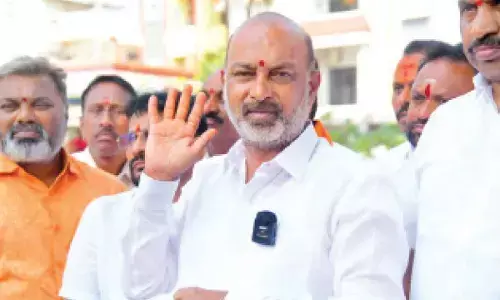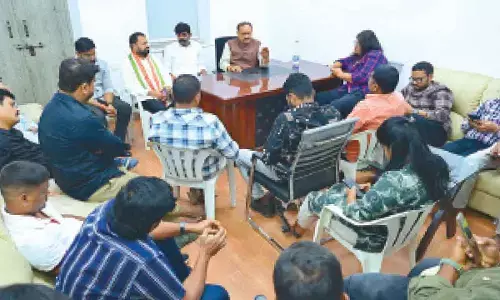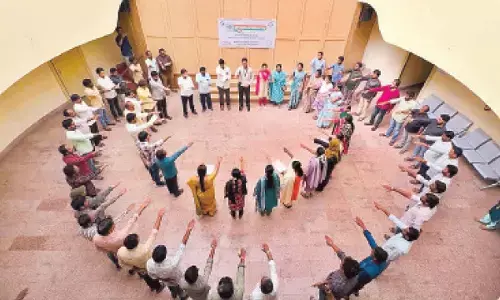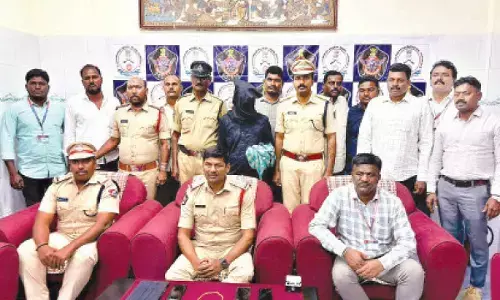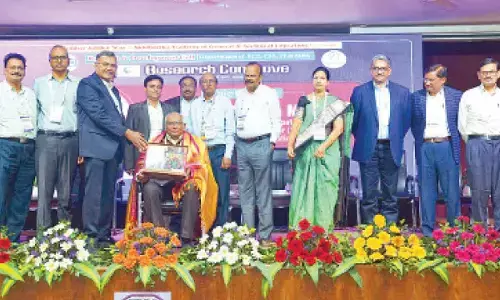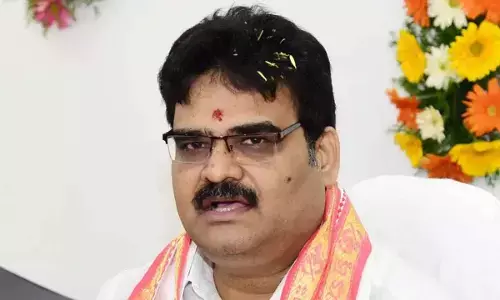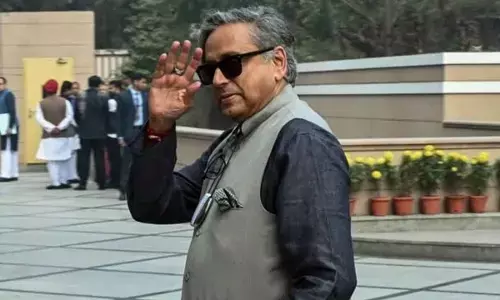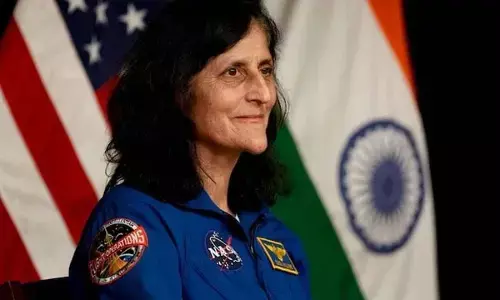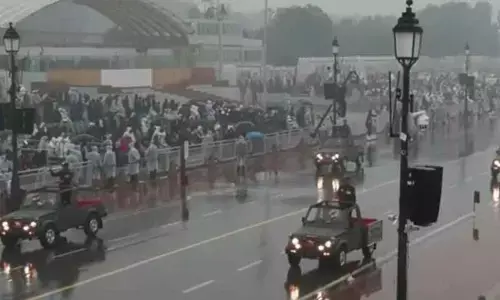Chennai nightmares: In Nature Vs Technology, there are no winners
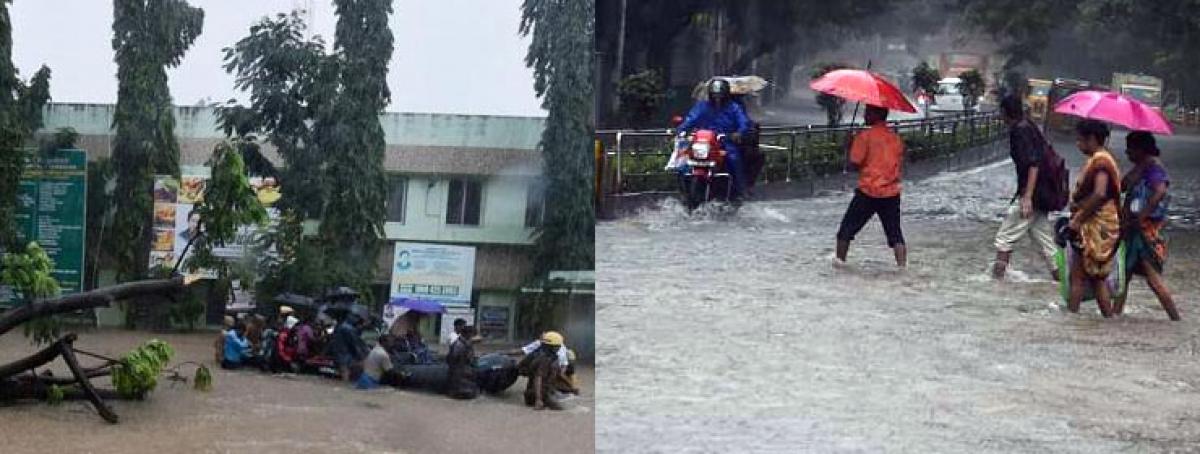
I came to the city after five years. My Chennai - of smiles, caring, joys and tears. I came in, despite having seen the pictures of inundated first-floors of houses on the Old Mahabalipuram Road, or OMR, now unrecognisable by the crowding of buildings and offices. This was once the great road that took you south from the city.
Chennai: I came to the city after five years. My Chennai - of smiles, caring, joys and tears. I came in, despite having seen the pictures of inundated first-floors of houses on the Old Mahabalipuram Road, or OMR, now unrecognisable by the crowding of buildings and offices. This was once the great road that took you south from the city.

I had asked visiting family friends from Chennai last week if the whole city was flooded after the mid-November rains. They said, only South of Chennai was, generally. "They have built on the marshes", they said, and that's why OMR is flooded, sending me photographs on smart phones.
Aha...I had thought. In the age of technology, evidence is just one click away. To make a decision on whether to go, I now had an instant reality-check tool.
When I landed at Meenambakkam, it was dry. The road department had opened up the Madhya Kailash turning towards the Governor's House - closed for several years because of the Metro Rail construction.
I had been in Chennai for two days. And it was only drizzling. I decided to finish my work and then plan out the rest of the week.
But it rained all Monday night. Still, I set out for Fort S. George on a gray, windy morning. There was ankle-deep water before the house, just a yard away from the waiting vehicle on the road.
I was going in search of history. I had planned to visit St Mary's Church in the Fort before beginning work on a new book. I remembered once going into George Town, just behind the huge musty-smelling mansions, where thousands still lived. Walking along the perimeter walls, I reached the cell-like rooms in the warren of government offices in the Fort where the documents I needed to look at were.
At 9 a.m. the city looked rainwashed and fresh. But as soon as we turned into Beach Road from Adayar, the traffic started slowing.
The driver said the Chembarambakkam Lake gates were open so that water could flow into the river and out to the sea. Kottur was already flooded, he said.
As soon as the rains came in, we knew the city was going to get flooded. We turned into the narrow Srinivasapurum Kuppam Road, the southern extreme of the vast Marina. A gale was blowing by then and the fishermen's beach was just a narrow strip. The Marina wore a desolate look. The lingering memories of the 2004 tsunami surfaced.
I took pictures on my phone to send them to my family. Looking out from the tenth floor of the Secretariat, the city looked calm and stoic at two in the afternoon. The television kept playing shots of bodies being recovered by villagers from far flung farms. By three, I decided to return.
My colleagues talked of the El Nino effect. The driver said the state had not been without rain during Amma's rule, the moniker used for Chief Minister J. Jayalalitha. He meant it was a blessing. Rains during the south-west monsoon for Chennai are normal for this time of the year. But the deluge seems extraordinary, hardly a blessing.
The Met Office said that there were three depressions over Sri Lanka, moving to west Indian coast via Chennai. That meant more rains. Gandhi Nagar, where I lived, was completely under water by four. The power utilities had begun cutting off electricity supply, area by area. It was dark at home. The television screen was dead.
We used a inverter-lit single light to work, read, charge phones and laptops. The landline phone and the wi-fi connection were off. By six o'clock my WhatsApp was full of pictures from friends, of road caving-in at Madhya Kailash and other disasters. Someone sent me a photo of the flooded airport.
Thank God for smart phones, inverters and WhatsApp, I thought.
"Come back at once," a relative called to say. I tried to make light of the situation, saying I had yet not grown wings. I waded out in search of water and milk as a friend had called to remind us that we must store. Another picture came on the phone showing that the Indira Nagar drinking water pipe had burst, spewing a six-foot-high fountain. Water, water everywhere.
South Chennai was reeling under water coming from Chembarabakkam. Amusingly, the Taramani Water Studies Institute was under shoulder-high water. They could now do all their studies in-house.
I could not leave, even if I wanted to. No wonder, IT companies on OMR flew their employees every November to their Bangalore offices to meet foreign commitments. Not all had been able to do that, this time.
A reporter stuck on a plane ready to take off sat on the tarmac for four hours before being de-boarded, with two hundred others. The airport was closed for two days. The National Disaster Response Force troops were on the streets.
During dinner, we heard that the Vandaloor zoo has been breached. On the first floor we were better than those animals, I imagined them groping around in their cages for escape. I am safe and dry. A relative bought me a return ticket for four days later, hoping the plane would take off.
The invertor has given up after fourteen hours. Water and milk has run out. The maids came wading, saying there were rumours that a thousand people had died in the deluge. Vast areas of standing crops had been destroyed. App-based taxi service Ola has requistioned fishing boats, turning them into taxis to ferry passengers to higher grounds.
The rain has stopped, but not the misery. In Nature versus Technology, there are no winners. In a modern city, we are reduced to surviving like our forefathers.
By Papri Sri Raman
(The author is a freelance journalist. She can be contacted at [email protected])
Next Story








